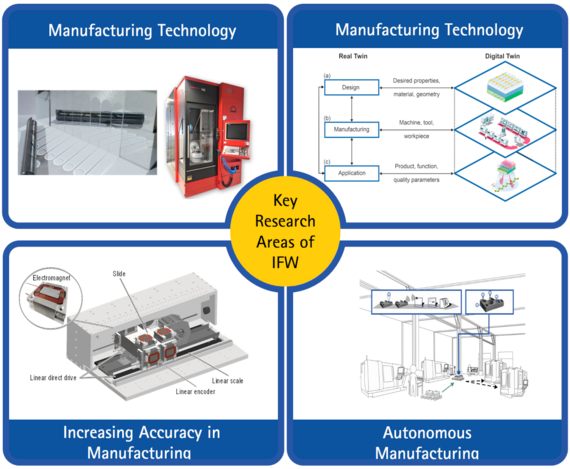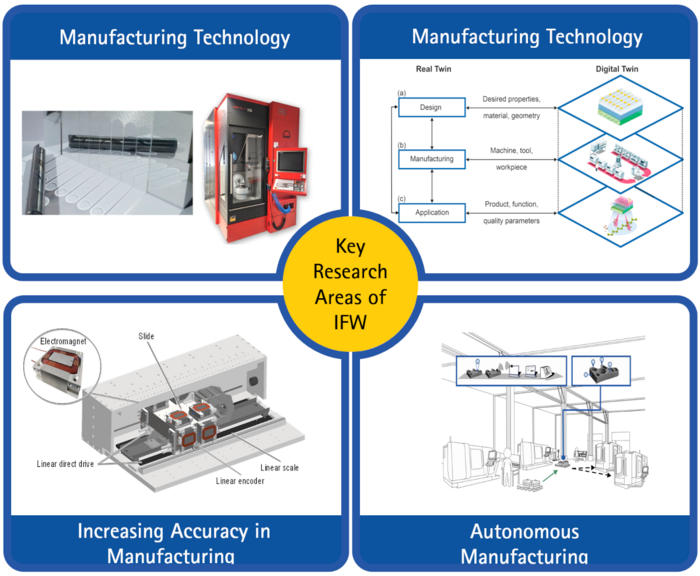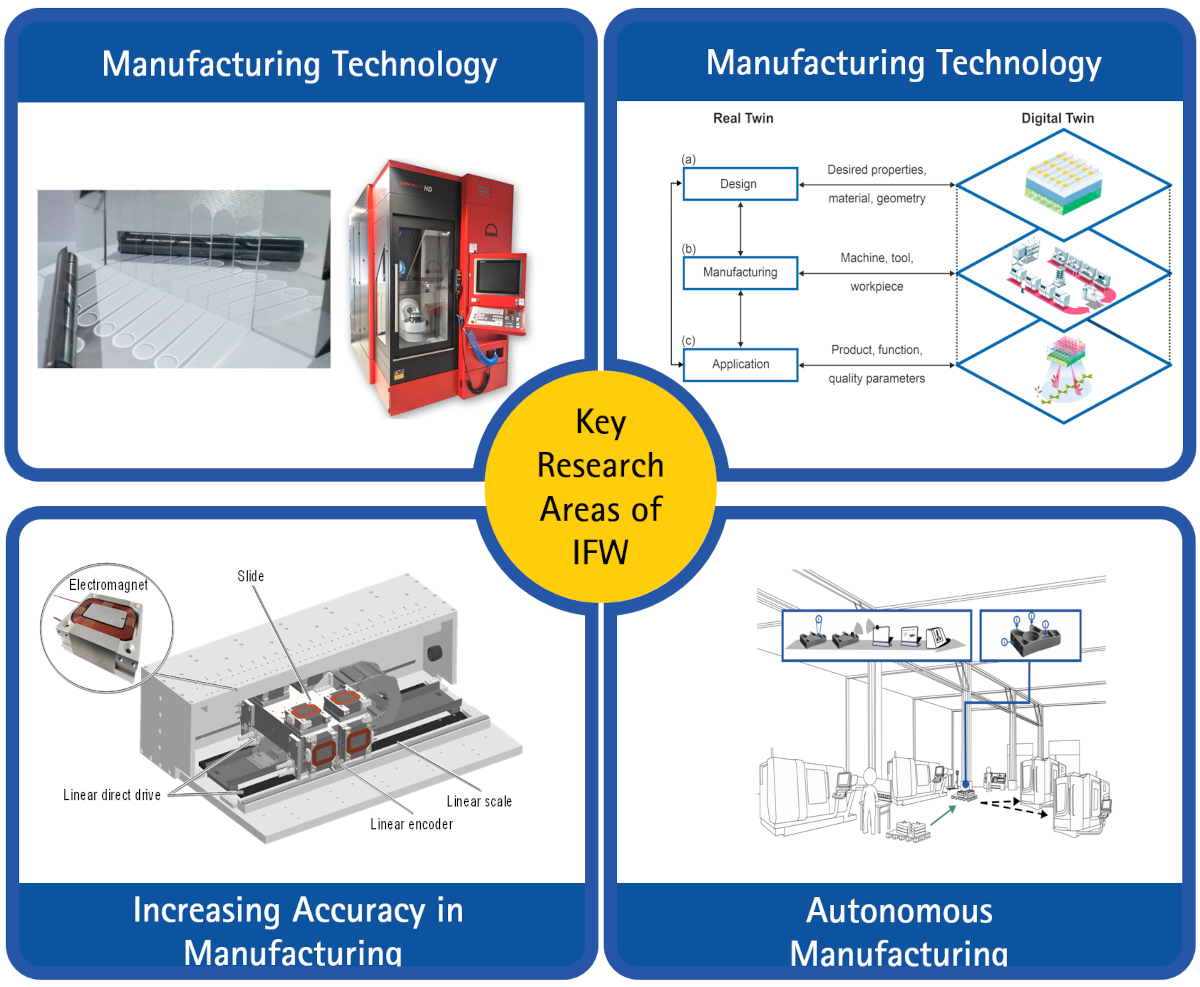Prof. Dr.-Ing. Berend Denkena


30823 Garbsen


30823 Garbsen
Research in PhoenixD
Novel optical elements require high dimensional accuracy and integrated functionality. Precision and productivity are essential aspects in manufacturing of optical elements. To meet this challenge, we at IFW are pursuing four key research areas: Manufacturing Technology, Digitalization, Autonomous Manufacturing and Accuracy in Manufacturing. Currently, different approaches are being investigated to optimize the process chain through different manufacturing processes and development of a Digital Twin (DT). Its implementation will allow the use of simulation-based process planning to optimize the process chain and combine additive and subtractive manufacturing. In addition, the accuracy of the manufacturing grid will be improved by developing a magnetically mounted linear actuator for precise transfer of the workpiece between manufacturing machines. Over the next few years, we will continue to investigate the interaction between additive and subtractive manufacturing, with a focus on the micro scale, using our new precision machine tool. The DT concept will be extended to autonomous process planning, considering the interactions within this process chain to achieve high quality requirements. The methodology for implementing a DT will be transferred to other processes and process combinations. The magnetic actuator will be integrated into an existing flexography module. In a long-term, the investigated manufacturing technology can be used to produce free-form optical surfaces made of different materials. Furthermore, the methodology will be extended to consider and plan the entire lifecycle of optical elements. In this way, the information is not only used to optimize the manufacturing itself, but also provides feedback for the previous design and the subsequent application. Positioning in the manufacturing grid is achieved by intelligent actuators using process data. The resulting holistic process planning will be used for the autonomous production of optical elements.


 ©
Malek/IFW
©
Malek/IFW


